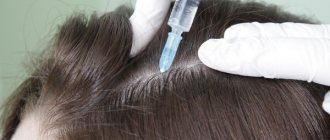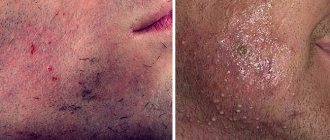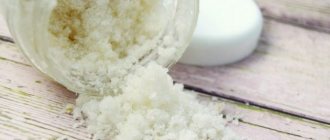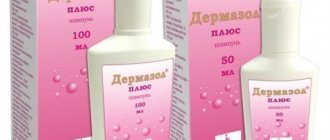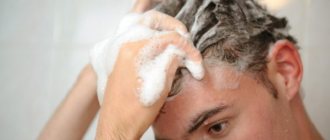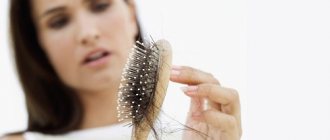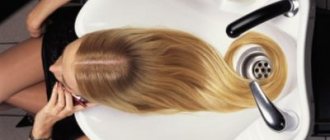Causes of excessive dry scalp
First you need to find out the reason that led to this condition. More often it becomes due to aggressive styling and poor choice of care products.
Below are the most common factors:
- aggressive blow-drying, styling with a curling iron;
- poor-quality shampoo or conditioner chosen incorrectly for your skin type;
- hormone imbalance (increased acne, menstrual irregularities and brittle nails may also occur);
- lack of vitamins;
- fungi that affect the epidermis and cause itching and hair loss;
- dehydration (you need to drink 1-2 liters of water daily);
- smoking and alcohol abuse disrupt the functioning of blood vessels, which is why the skin does not receive the required nutrition;
- failure of the endocrine system, when the body's metabolism is disrupted;
- pregnancy, during which a deficiency of nutrients may occur.
How to moisturize your scalp
To normalize the general condition of the skin, the first step is to consult a dermatologist or trichologist and undergo a comprehensive diagnosis to recognize the main provoking factor. Here are general recommendations from experts:
- If allergic dermatitis develops on the head, the positive dynamics of the disease without identifying and eliminating the pathogenic factor (food allergen) is weakly expressed or completely absent.
- If you suspect seborrhea, you first need to determine the nature of the pathogen. More often it is a fungus, which can be destroyed by a course of antifungal therapy using tablets for oral administration, ointments, gels and shampoos externally.
- If you have problems with the digestive, nervous, or endocrine systems, you must promptly contact specialized specialists and receive basic treatment. It is possible that one of the positive aspects of such drug therapy will be moisturizing and nourishing the scalp.
- If the cause of dryness is seasonal vitamin deficiency, the main goal of treatment is to compensate for the lack of vitamins in the body. This can be done by making certain adjustments to the daily diet or after the doctor prescribes a special multivitamin complex.
- Psoriasis and eczema are dangerous skin diseases. The main task of the patient when diagnosing them is strict adherence to medical recommendations; this will significantly reduce the number of relapses.
Symptoms
With age, collagen fibers cease to be elastic, and there is a lack of moisture in the cells. Under the influence of these factors, the skin becomes defenseless from an aggressive environment. This causes burning and discomfort.
Dry skin can be identified by its characteristic symptoms:
- peeling of epidermal scales;
- tightness, burning;
- hair fragility, dull color, increased hair loss;
- electrification of hair from a comb;
- tingling, discomfort.
Signs of dry skin
The risk category most often includes women who are over 40 years old. The sebaceous glands do not work well, which causes dryness. Collagen fibers lose their elasticity, and insufficient moisture appears in the cells.
The skin becomes defenseless against external influences. Reduced blood circulation contributes to the occurrence of alopecia. If dry skin appears after washing your hair with conditioner, you need to urgently find out the exact cause.
If the scalp is dry and flaky, especially after dyeing your hair, then measures must be taken urgently. Especially if there is increased hair loss.
Dry skin can be identified by several signs:
- irritation;
- itching;
- constant desire to scratch the scalp;
- the occurrence of dandruff;
- fragility and hair loss.
Self-determination of dry scalp is carried out in this way: blot the roots with a napkin - in normal condition, there should be stains of sebum on it. Otherwise, there will be dandruff particles on it.
How to distinguish dry scalp from skin diseases
Dry scalp and itching (a dermatologist will tell you what to do and how to identify skin diseases) is a common phenomenon. The cause of itching can be serious rashes (seborrhea, psoriasis or dermatitis). Their symptoms are very similar, especially in the initial stages.
Later, it is easy to distinguish dry skin from a specific disease - you need to pay attention to the following factors:
| Disease | Symptoms |
| seborrhea | excessive fragility of hair, dandruff progressing day by day, dryness observed on the face and throughout the body |
| oily seborrhea | To the listed factors, inflammation of the sebaceous glands is added, as well as layering of dandruff flakes on top of each other |
| psoriasis | pink tubercles with a white cap (plaques) appear; when they are removed, blood appears, and new plaques appear in the same place. Lumps appear on other parts of the body: lower back, knees and elbows |
| dermatitis | accompanied by severe itching, red spots and weeping wounds appear at the site of scratching |
If the itching is accompanied by any incomprehensible and unpleasant manifestations (spots, pus, wounds), then its cause is a skin disease. Then appropriate treatment with drugs and observation by a specialist is required.
Dry scalp, dry hair: what are the reasons?
Let's discuss why dry skin and dry hair happen, what to do about this problem and is it possible to get rid of it in a short time?
in winter
A fairly common cause of dry scalp is unfavorable climatic conditions (dry air and frost, sudden temperature changes). These factors act as a provocateur for the occurrence of both dryness and flaking, as well as skin itching.
Frequently being exposed to snow with your head uncovered can also cause dryness. This is explained by the fact that atmospheric phenomena, when deposited on the strands, can take away most of the moisture from the skin and hair, thereby causing flaking and itching.
In addition, snow may contain harmful chemical elements that have a negative effect on the health of the hairstyle, and can also cause various kinds of dermatological problems.
Insufficient fluid intake . In winter, a person does not feel particularly thirsty, so the amount of water consumed during the day is noticeably reduced. This leads to dehydration of the body, which leads to the skin drying out - it becomes rough and rough.
In summer
The main reason for this problem in the summer is the effect of ultraviolet rays . The sun's rays lead to drying of the upper and deepest layers of the dermis.
Ultraviolet light, penetrating the skin, causes the destruction of elastin and collagen, thereby softening the skin structure. The result of this is the appearance of such troubles as dryness, sagging and sagging.
Regardless of the time of year
There are external and internal factors that influence the appearance of dryness. External ones include:
- excessive use of styling tools that have the ability to cause overheating of curls and skin;
- washing your hair with too hot water;
- frequent dyeing of strands;
- being in a room with very dry air;
- use of cosmetics that do not correspond to skin typology.
Internal ones include:
- presence of skin diseases;
- metabolic disease;
- period of bearing a baby and breastfeeding;
- bad habits - smoking, drinking alcohol and drugs.
IMPORTANT ! If the sensations on the skin cause unbearable discomfort, accompanied by itching and the appearance of dandruff, these are the first signs of dryness, so it is necessary to immediately take measures to combat this problem.
Dry scalp: what are the causes and what to do? Watch the video:
Basic principles of treatment
The first step is to change your shampoo, give up heat styling, stop dyeing your hair (or choose soft products from natural ingredients). It is advisable to include foods rich in vitamins and fats, fresh vegetables and fruits in your diet.
Also recommended:
- applying nourishing masks;
- rinsing with herbal decoctions;
- taking vitamins;
- giving up alcohol and smoking;
- head massage that will improve blood circulation;
- wearing a hat in cold weather;
- washing with boiled (or filtered) warm water.
If a patient has been diagnosed with a skin disease, treatment is prescribed by the attending physician. It consists of applying ointments, taking antifungal tablets and vitamins.
Prevention
In order for your curls to always be beautiful, shiny and not look unkempt, you should follow the following recommendations of a dermatologist:
- try to choose a shampoo that best suits the type of dermis of the scalp;
- start eating right, including vegetables, fruits and dairy products and meat in your diet (in no case should you go on a diet, because it can provoke the development of dandruff);
- try to disinfect hair accessories if you are not going to use them alone;
- always protect your curls from exposure to UV rays and temperature changes with a hat;
- washing your hair should not be too frequent or, conversely, quite rare;
- keep a daily routine;
- minimize heat treatment of your hair (if you use a hairdryer, try to turn on only cold air and point the barrel of the device from top to bottom).
If dandruff occurs frequently in spring and autumn, cosmetologists recommend resorting to 1% ointments and shampoos based on ketoconazole, zinc pyrithione or climbazole. The course lasts no more than a month, with procedures performed only once a week.
Thus, if you have dry dandruff, then quickly go to the pharmacy for medicinal cosmetics. If you just have skin tightness, you can use a moisturizing cream (ointment) or use a mask prepared on the basis of oils, herbal decoctions, juice of fresh vegetables and fruits. Be extremely careful when using cosmetics, because some chemical components of products purchased at the pharmacy can cause side effects. If medications do not help, look for the root of the problem in the disease of internal organs and systems.
Washing hair for dry skin
Dry scalp and itching: what to do and how to wash your hair correctly in this case, a professional cosmetologist can tell you. The optimal frequency of washing your hair is once every 5-6 days. The hotter the water, the better (the functioning of the sebaceous glands improves).
The whole process looks like this:
- before washing, apply a nourishing mask;
- The product is first applied to the hands, whipped into foam, and then rubbed into the roots with massage movements;
- the shampoo is washed off, and the hair is rinsed with a decoction of calendula or nettle (2 tablespoons of herb per half liter of water);
- a soothing balm is applied (optional).
It is better to dry your curls naturally: wrap them in a towel and wait until the moisture is absorbed. It is not recommended to comb wet hair; it is better to do this afterwards.
Causes
More often, this health problem develops during seasonal vitamin deficiency. Microcracks and cracks form on the surface of the skin, into which dust, chemicals, and various contaminants enter. Hair becomes brittle and dry, and dandruff appears. The list of reasons why dry scalp does not end here. Trichologists identify other physiological factors:
- unhealthy diet (consuming large quantities of fast food, fatty, salty, smoked and fried foods);
- presence of bad habits (smoking, drinking large portions of coffee and alcohol);
- sedentary lifestyle (refusal to walk in the fresh air, physical passivity);
- everyday use of low-quality hair cosmetics, the presence of potential allergens;
- washing your hair in excessively hot water, regularly using a hair dryer to dry your hair;
- frequent painting, use of low-quality paint;
- long stay under the burning sun without a hat;
- genetic predisposition, when dry skin is inherited;
- food allergies to certain foods from the daily diet;
- menopause period;
- dehydration of the body;
- changes in hormonal levels due to progressive pregnancy.
Increased dryness of the epidermis often becomes a pronounced symptom of an internal disease. It will not be possible to solve a health problem until the doctor, together with the patient, manages to defeat the main diagnosis. Possible skin diseases such as psoriasis, seborrhea, eczema, ringworm, dermatitis. Fungal infection should not be ruled out. Other pathological factors:
- metabolic disease;
- gynecological diseases;
- problems with the thyroid gland;
- chronic diseases of the digestive system;
- suffered stress.
Shampoos
The right choice of shampoo will help solve the problem by 70%. It is advisable to select soft products that contain niacinamide, panthenol, bisabolol and allantoin. They can relieve irritation and itching. Shampoos with natural additives, nourishing oils and without fragrances help well.
Below is a description of the best options for dry skin:
| Shampoo | Compound | Action | Price |
| Clean line No. 3 | herbal extracts: saponaria, St. John's wort, nettle, oak, yarrow, chamomile and black mulberry | saturates hair and skin with nutrients; eliminates fragility and split ends; compacts the hair structure | 400 ml from 70 rub. |
| Dove Hair Therapy Nourishing Care | ultra-light coconut and almond oils, vitamin A, B, C | nourishes the epidermis and hair along the entire length; improves structure; hair stops becoming electrified and frizzy | 200 ml from 110 rub. |
| Natura Siberica “Protection and nutrition” | extracts of rose radiola and cedar milk, coconut oil, Kuril tea, chamomile, charmadon, sea buckthorn and burdock oil | restores damaged hair along the entire length; thoroughly cleanses the epidermis without injuring it; | 400 ml from 180 rub. |
| Kerastase Bain Satin 2 | glycerin, lipids, satin proteins | reduces dandruff and prevents its re-formation; makes hair shiny and strong | 250 ml 1200 rub. |
Cosmetics for hair loss
Two separate groups of care products are usually recommended.
- behind the scalp;
- for hair.
For the scalp, a cleansing system that includes:
- use of shampoo - 2-3 times a week;
- applying a mask or peeling mask for gentle and deep cleansing - 1-2 times a week;
- course use of intensive agents to slow down hair loss, which include components to stimulate hair and microcirculation: peptides, extracts of rosemary, pine, arnica, aloe, as well as caffeine, apigenin, aminexil, panthenol.
It is recommended to apply the intensive product daily for up to 3 months, then every other day as maintenance therapy.
For hair care, experts recommend using structuring products: they thicken the hair shaft and visually increase volume. The formula is based on proteins, silicones, lipids, and oils. Products can be washable or indelible.
To identify the cause of hair loss, we advise you to consult a trichologist. © iStock
Moisturizing masks
Making special masks for dry, itchy scalp is an excellent way to soothe the epidermis and saturate it with nutrients. They are applied before washing your hair and left for 15 to 30 minutes for maximum effect.
The most well-known remedies today include the following:
- Philip Kingsley Scalp Mask: soothes the skin, cleanses well and gets rid of dandruff. The mask is rubbed in with massage movements and left for 10 minutes.
- Revlon Professional SOS: Ideal for people prone to allergies, it is gentle and helps relieve irritation. Apply a thin layer to a clean head and do not wash off;
- Optima Maschera Cute Sensibile: heals the skin, stimulates blood circulation, effectively fights dehydration. Apply after washing to the epidermis and hair from roots to ends; rinsing is not necessary.
- Sea Of Spa Hair Care Mask: this is a mud mask that has a soothing effect on the epidermis, filling it with moisture and nutrients. Apply to moistened hair roots with massage movements, leave for 6-8 minutes, then rinse off.
Regular application of masks will help moisturize the skin, get rid of dryness problems and significantly improve the appearance of the hair.
Causes of dryness
There are a million factors why normal scalp suddenly becomes dry and often irritated. This may be a momentary impact of negative external influences or the first symptom of the development of a serious illness.
In most cases, non-pathological causes can be dealt with fairly quickly on your own. If painful changes are detected, only a qualified doctor can help.
Household
Most often, a sharp deterioration in the condition of the scalp and premature baldness is provoked by everyday reasons, which we simply do not pay attention to in our everyday rush.
According to doctors, a person visually notices that the hair has thinned when 15 to 20% of the hair has already been lost. Therefore, you need to be more careful about your own head.
Here are the most common causes of dryness and hair loss:
- Irregular or improper care - low-quality shampoos, ignoring conditioners, washing your hair too often, masks and serums that are not suitable in composition.
- Abuse of styling products - they envelop the hair and prevent it from breathing and nourishing normally, and some lead to increased fragility and brittleness.
- Hot styling and hair dryer - high temperatures literally “suck” life-giving moisture from the skin and hair. In addition, when exposed to hot air, the keratin scales do not close tightly, and even after drying, the hair loses water.
- Coloring and curling - under the influence of chemical reagents, the scalp is almost completely degreased, and the sebaceous glands are not always able to restore balance, and sometimes the chemicals provoke their hyperactivity, leading to the development of oily seborrhea.
- Self-lamination - when performing the procedure in the salon, the master does everything to prevent the composition from getting on the scalp, but at home this is almost impossible, since it is very difficult to work on your own, and you do not have the necessary skills.
- Dehydration and vitamin deficiency - with a lack of water in the body, the blood becomes thicker, it is more difficult for it to penetrate the capillaries, and the hair follicles do not receive sufficient nutrition, and with a deficiency of vitamins, they lack building materials for hair.
- Tight ponytails and braids - if you regularly do such hairstyles, the hair follicles become loose, and the hair begins to rapidly thin out, and the scalp itches from constant tension.
- Alcohol and smoking - not only do these products chronically poison the body, creating additional stress on the liver and kidneys, but they also provoke dehydration and vascular spasms.
Solarium lovers often complain that their hair has become dry and falling out. Under the influence of ultraviolet radiation, keratin scales are destroyed faster, and the hair loses moisture. A sufficiently high temperature, coupled with intense airflow, dries out the skin.
The condition of the hair noticeably deteriorates even after an active holiday at sea, but with proper care everything quickly returns to normal.
Hair loss and itching
Another common reason for very dry scalp and hair loss is various diseases. It is not easy to identify them at the initial stage. Therefore, people seek help mainly when the disease has already developed. Although, if noticed in time, it is much more treatable.
You should start to worry if you notice that the number of hairs remaining on your comb is constantly increasing. Normal losses are considered to be up to 100-150 pieces per day. And if your hair comes out in clumps, this is already an alarm bell.
The second important symptom is itching, which always accompanies increased dryness. Even if these two pathologies are present, it is worth seeking advice from a specialist. They can signal the onset of serious illnesses.
Endocrine disorders
Any disruptions in the functioning of the endocrine glands immediately affect the condition of the entire body, since they produce hormones that regulate vital processes. Hormonal imbalance leads to the fact that organs and systems begin to work inconsistently. For example, capillary spasms often occur and the hair follicles do not receive sufficient nutrition. Or the activity of the sebaceous glands decreases, and the skin, including on the head, becomes too dry.
A symptom of serious hormonal disorders is the presence of several of the following signs:
- sudden change in body weight;
- menstrual irregularities;
- insomnia and fatigue;
- increased nervousness, aggression for no reason;
- dry and brittle nails and hair;
- skin spots or rashes;
- decreased sex drive.
Untreated hormonal imbalances can lead to the development of serious chronic diseases!
Seborrhea
Seborrhea can be not only oily, but also dry, accompanied by severe itching and copious discharge of fine dandruff. It crumbles onto your shoulders, covering them with a thin layer that looks like sifted flour.
Doctors still cannot pinpoint the cause that leads to the formation of dandruff. Today, its culprit is considered to be an opportunistic fungus present on the skin of every person.
When the immune system works normally, the fungus cannot actively reproduce - the body creates unfavorable conditions for its development. In case of colds, chronic diseases, after severe stress or serious overwork, the body's defenses are sharply reduced. The fungus develops and dandruff forms. The head begins to itch, the skin becomes irritated and, if the process is not stopped, alopecia appears over time.
Psoriasis
This is a serious pathology, the trigger mechanism of which is not fully understood. In patients with psoriasis, hyperactive growth of epidermal cells occurs. The skin begins to thicken unevenly, forming scaly plaques that then peel off. During an exacerbation, red spots appear on the skin, it is constantly irritated and itches very much.
If psoriasis is not constantly controlled in the regression stage, without allowing frequent exacerbations, it invariably leads to diffuse alopecia.
Hair follicles on damaged areas of the skin do not receive sufficient nutrition and die. There is no way to restore them later, no matter what unscrupulous doctors promise you. Therefore, patients with psoriasis should be under constant supervision of a dermatologist and/or trichologist.
Eczema
This is also an extremely unpleasant thing that can develop from ordinary allergies or dermatitis. But often eczema becomes a companion to chronic diseases of the digestive system, neuroses, liver or kidney pathologies, and prolonged stress. Its first symptoms are severe redness of the skin in spots, unbearable itching, increased dryness and a burning sensation in the affected areas.
When eczema is advanced, the skin becomes thin and begins to tear at the slightest tension. The wounds get infected, they rot and heal poorly, since normal regeneration processes are disrupted. Often, with an exacerbation of wet eczema, the body temperature even rises.
With this condition of the scalp, naturally, there is abundant hair loss, which, if the skin is severely damaged, may not grow back.
Vitamin complexes
In combination with other treatment methods, taking vitamin complexes helps a lot. They are recommended to be taken not only for medicinal purposes, but also for prevention. The standard course of administration is a month, 1 tablet per day, but according to the doctor’s recommendations, the dose and course are often increased.
- Vita Charm is the most popular vitamin complex designed for healthy hair, skin and nails. It contains vitamins A and B, as well as nutrients that enrich the skin and hair with microelements.
- Pantovigar is an excellent remedy for dryness. Contains amino acids, cystine, pantothenate and keratin, which provides the skin with complete nutrition and moisture saturation.
- Perfectil - contains plant extracts, minerals, folic acid and vitamins C, E, PP, B. Revitalizes even lifeless curls, restoring their health and shine. It can also be taken during pregnancy.
- Revalid - used for dry skin and dandruff. Contains zinc, copper, iron, wheat germ extract, millet and a complex of microelements. Improvements occur throughout the body, the skin calms down, the hair becomes strong and strong.
Dry facial skin
- Under the age of 20, dry skin, as a rule, does not cause trouble: there is no oily sheen, no pores are visible, acne and pimples do not bother you even during adolescence, and the skin has a pleasant pale peach tint.
- After 20 years, dramatic changes occur. In the absence of careful and proper care, dry facial skin appears - the skin becomes rough, less elastic, there is a feeling of tightness, irritation, cracks, and even “lichen” spots.
- The skin becomes sensitive to the sun, cold wind, air, and strong temperature changes. Due to the absence or lack of nutrition and hydration, early premature aging begins, especially in the area around the eyes and nasolabial folds.
Therefore, it is important to choose the right care, taking into account its characteristics and needs for nutrition and hydration.
Homemade masks for dry scalp
You can make a mask at home from natural ingredients. The easiest and fastest way is fermented milk products. It is enough to take 200 ml of kefir, heat it, apply to the scalp and leave for 25-30 minutes. The result is visible after the first use.
The following masks also help a lot:
- from an onion: the onion is crushed to a paste, placed on cheesecloth and carefully placed along the partings. The bulb is good for hair loss and burning. The mask is left for 25 minutes, then washed off with water. Attention! There may be an unpleasant odor after the mask.
- from honey: 30 ml of liquid honey is mixed with 55 ml of olive oil and rubbed into the roots. The mask soothes the skin, improves its structure, and acts as a good moisturizer. It is enough to hold for 20 minutes.
- from egg yolk: beat the yolk with a mixer, then add 55 ml of water and 25 ml of vodka (to increase blood flow). The resulting mixture is applied to the hair and left for 17-18 minutes. Wash off with warm water.
- from sour cream: 1 tbsp. sour cream mixed with 1 tbsp. lemon juice, stir with raw egg until smooth. The mass is applied to the surface of the head while warm (it speeds up nutrition) and kept for 30 minutes. When applying, it is recommended to massage.
- from burdock oil: a simple recipe - just buy the oil at the pharmacy and apply a thin layer to the entire surface of the head. Wash off after 25-35 minutes; to achieve the best results, leave the oil overnight.
Folk remedies to combat dry skin
There are alternative methods aimed at preventing problems associated with the scalp. To do this, use the following masks:
- From fermented milk products. Kefir or yogurt is suitable for the procedure. Take a glass of the product, heat it and apply to your hair. Wrap up and wait 30 minutes. Make a second mask and wash your strands well.
- Egg. Chicken yolk is mixed with 10 drops of glycerin and a spoon of castor oil. Mix and apply evenly to hair. Wrap your head and wash it off with shampoo after half an hour.
What other folk remedies can be used for dry scalp? From known products and plants you can prepare mixtures for masks, decoctions and balms. They can moisturize the scalp, relieve inflammation, remove blemishes and redness.
The most popular and effective folk remedies include:
- Olive oil. It can be used to prepare a mask. Heat 5 tbsp. spoons of oil, add a spoonful of lemon juice. Apply the mixture to your hair. Leave for 20 minutes and rinse with regular shampoo. The procedure must be carried out at least 2 times a week. After a month, you can completely get rid of peeling.
- Onion mask. Relieves itching and stops hair loss. Take an onion, twist it through a meat grinder and apply it to your hair. After 40 minutes, rinse with water.
- Burr oil. Using it in its pure form will benefit your hair and scalp. Keep the mask on for at least 30-40 minutes. For greater effectiveness, it can be kept overnight.
- With sour cream. Mix the product and lemon juice in equal proportions, adding one egg. Heat the mixture and keep it on your hair for 20-40 minutes.
What to do: Is your scalp dry and itchy? Herbal preparations, based on which decoctions are prepared, have an excellent effect.
Pour half a glass of oak bark and onion peel into a liter of hot water and simmer over low heat for half an hour. Rub the product into the scalp. Wrap in a warm towel and hold for 30 minutes.
By using folk remedies, shampoos and medications in combination, you can reduce the symptoms of dry skin.
Oils
Dry scalp and itching: a dermatologist will tell you what to do and how to relieve the itching. Oils quickly cope with this task. They are rubbed into the hair roots for 20 minutes. Before washing your hair, use light massage movements.
It is very convenient to apply oil with a pipette, which allows you to adjust the amount of oil. The oil stays on for 20 minutes, after which you can wash your hair. It forms a protective film that prevents moisture from evaporating.
This improves the functioning of the sebaceous glands and saturates the epidermis with useful substances.
For dry skin it is recommended:
- coconut oil: considered an effective remedy for dryness, it is recommended to choose refined oil as it is easier to wash off;
- avocado: works well against dandruff, soothes the skin;
- shea: ideal for inflamed skin, quickly softens and soothes it;
- sea buckthorn oil: can not only soften the epidermis, but also kill bacteria and fungi. Under its influence, wounds heal quickly, dandruff completely disappears;
- almond oil: quickly penetrates even into the lower layers of the epidermis, has a general strengthening effect.
Before use, you need to check for allergies: apply 1 drop to the crook of your elbow and wait 15 minutes. If everything is fine (no rashes or redness), then the oil can be used.
Local preparations
The following types of topical medications are also used in the treatment of dry scalp and baldness:
- ampoules;
- serums;
- shampoos;
- balms;
- lotions.
You can use topical medications to get rid of dandruff.
Among the ampoules, the following drugs are the most popular:
- "Rinfoltil";
- "Derkos";
- "Dixon."
"Rinfoltil" contains extracts of medicinal plant components that not only nourish the strands, but also moisturize the scalp, and also saturate it with all the necessary elements. The drug is also available in the form of shampoo and medicinal balm.
"Derkos" provides additional protection to curls and helps strengthen hair follicles. Regular use of these ampoules restores natural beauty to the hair, and the oils included in the composition eliminate dry skin, filling it with moisture. The manufacturer of ampoules also produces a series of medicinal shampoos, lotions and conditioners.
With regular use, Dixon restores strength and beauty to your curls. The drug eliminates dryness, split ends and brittle ends, and also prevents premature death of curls.
Among shampoos, conditioners and lotions, the following products are most popular:
- "Rinfoltil";
- "Derkos";
- "Biocon";
- "Selencin."
These medicinal preparations are designed to enhance the therapeutic effect of ampoules and vitamins.
Other folk remedies
Traditional medicine offers other ways to help ensure good hydration. These are herbal infusions: they cleanse pores, relieve burning and normalize the secretion of glands to the surface.
| Raw materials | How to cook? | Actions |
| Burdock root | 2 tbsp. crushed root, pour 250 ml of boiling water and cover with a lid. After 30 min. the decoction is ready. | Rinse clean hair with the broth and try to rub it into the skin. The recommended course of treatment is 3 weeks. |
| nettle leaves | 3 tbsp. dried leaves are crushed, pour 1.5 liters of wine vinegar. You can also add thyme and lavender flowers. The mixture is infused until cooled. | The infusion is rubbed into the scalp for 3-5 minutes. Afterwards, the hair is rinsed with clean water. Perform the procedure once a week. |
| Oregano | 100 g of oregano is poured with half a liter of boiling water and left overnight. | Rinse clean hair with the infusion. Treatment can be carried out every other day for 3 months. |
| Calendula | 2 tbsp. Calendula flowers are mixed with 1 tsp. burdock root, pour 1 liter of water and put on fire. Cook for 15-20 minutes. | Rinse your hair with the decoction after washing. The course of treatment is 3 weeks. |
| Onion peel | 30 g of onion peels are poured into 400 ml of water, put on fire and boil for 20 minutes. The broth is cooled and filtered. | Rinse your hair with the resulting decoction, then comb it and rinse again. |
Mask
If scales appear in your hair, you are worried about the feeling of tightness and itching, the first thing you need to do is go on a therapeutic diet and control your drinking regime. After diagnosis, the doctor prescribes medication. In addition, using natural cosmetics, you can provide intense hydration to your scalp at home. The selected mask recipe should not contain allergens.
Onion
This mask for dry scalp quickly removes the unpleasant feeling of tightness, restores the structure of damaged strands, and returns the hairstyle to a presentable appearance and a beautiful shade. A versatile effect is observed after the first session: dandruff disappears, the number of lost hairs is reduced, and dry strands are nourished.
You will need:
- medium-sized onion – 1 pc.;
- vegetable oil (olive, burdock, sea buckthorn) – 1 tbsp. l.;
- lemon juice – 1 tbsp. l.
Method of preparation and instructions for use:
- Peel the onion and squeeze out the juice.
- Add the selected vegetable oil to the resulting concentrate.
- Mix the composition thoroughly.
- Pour in lemon juice.
- Rub the homogeneous mixture into the roots and distribute evenly over the strands.
- Put on a plastic bag (cellophane cap).
- Cover your head with a warm scarf or terry towel.
- Do not wash off the mask for 1 hour.
- Rinse your hair with mustard solution (1 teaspoon of mustard per 1 liter of water).
Honey
This mask is used to moisturize the scalp if there is no allergic reaction to bee waste products. Honey not only moisturizes the dry dermis, but also provides it with about 400 vitamins and beneficial microelements. In this way, you can solve the problem of increased dryness, facilitate the process of combing strands, and restore the structure of injured hairs. It is recommended to perform the mask no more than 2 times a week; in total, 7–10 home procedures will be performed.
You will need:
- honey of any kind - 1 tbsp. l.;
- olive oil – 2 tbsp. l.
Method of preparation and instructions for use:
- Heat honey in a water bath.
- Add olive oil.
- Mix the resulting composition thoroughly.
- Distribute the warm mixture over the entire length of your hair.
- Put a cellophane cap on top and wrap your head in a warm scarf.
- Do not wash off the mask for 15–20 minutes.
- Rinse the strands under warm water, you can use a herbal balm or rinse.
Burdock
Moisturizing the scalp is done with the help of burdock, which is also called burdock. This medicinal plant supplies the roots and skin with nutrients, eliminates increased dryness, severe itching, successfully fights the symptoms of dandruff, and stimulates metabolism at the cellular level. As an alternative, you can rub burdock oil into the roots, or prepare an equally effective burdock decoction.
You will need:
- burdock root – 2 tbsp. l.;
- boiling water – 1 tbsp.;
- onion juice – 2 tbsp. l.;
- medical alcohol - 2 tbsp. l.
Method of preparation and instructions for use:
- Pour 1 tbsp dry burdock root. boiling water
- Place the mixture in a water bath and simmer for 7–10 minutes.
- Leave covered for 30 minutes.
- Strain the burdock infusion, add onion juice and medical alcohol.
- Rub the prepared mixture into the roots.
- Put a cellophane cap on top and wrap your head with a warm scarf.
- Rinsing is allowed only after 30 minutes.
- Carry out the procedure no more than 2 times a week.
Diet
Dry scalp and itching (what to do and how to treat is described above) is a serious problem that requires a comprehensive solution. A special diet will help speed up treatment. It will strengthen the immune system (protection against the proliferation of bacteria and fungi), fill the body with vitamins (the functioning of the sebaceous glands is normalized), and restore digestion (the condition of the skin will improve).
Changing your diet is what you need to do for dry scalp.
| What can you eat/drink | What not to eat/drink |
| clean water up to 2 liters per day; freshly squeezed juices, herbal teas; dairy products excluding milk; cheese; lean meat; low-fat fish; fresh vegetables and fruits without restrictions. | alcohol, sweet cocktails and sodas; semi-finished products, canned food and marinades; salty, spicy food; semolina, potatoes; bakery products; fried and fatty foods; citrus fruits (are allergens), honey. |
Ozone therapy
Ozone therapy is actively used to treat dry skin, dandruff and fungi. The procedure involves exposing the skin to highly active oxygen. There are several methods (external influence, injections or systemic administration) - the choice is determined by the attending physician.
During the procedure, the skin is saturated with oxygen, blood circulation is stimulated, which leads to hair growth. Irritation and inflammation go away, fungi and bacteria are destroyed, dandruff disappears. The results last for a long time.
Mesotherapy
Mesotherapy will help you quickly get rid of all unpleasant manifestations. It involves the introduction of nutrients into the epidermis through injections. The follicles receive the required elements, blood supply improves, and the secretion of the sebaceous glands is normalized. The procedure takes no more than 40 minutes, one course includes 8 sessions.
Dry scalp is an unpleasant phenomenon, especially when it itches. What to do and which method to choose depends on the severity of the disease. If itching has recently begun to bother you, then you can start with traditional medicine recipes. If the condition worsens, then an integrated approach and consultation with a specialist are necessary.


